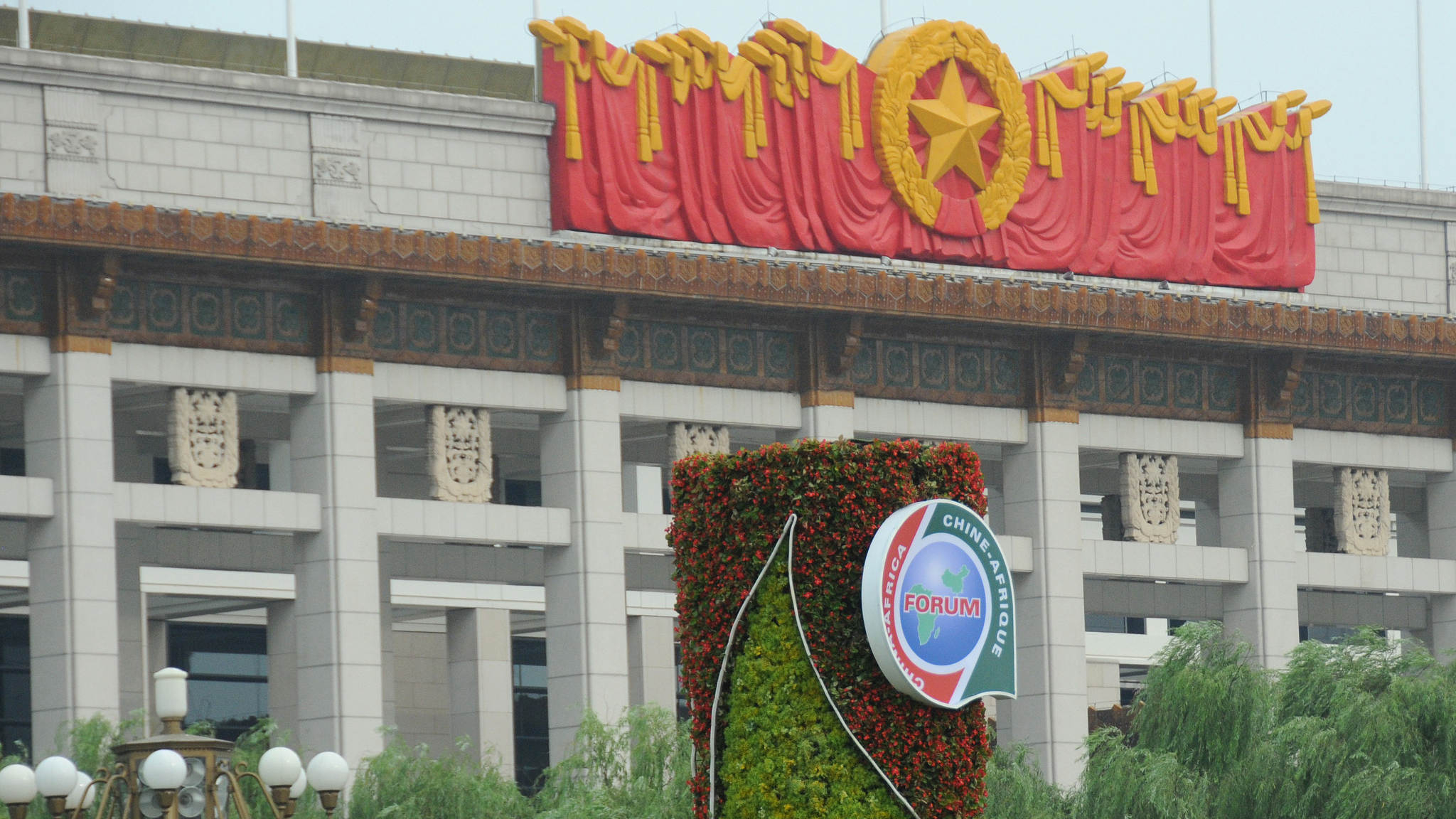
(Photo: CGTN)
Editor's note: David Owiro is an independent consultant analyst of economic/political affairs in Africa. The article reflects the author's opinion, and not necessarily the views of CGTN.
China’s strategy in Africa is evolving. In the early years of the last two decades, we saw an emphasis on raw commodity exports in exchange for Chinese consumer goods imports.
This has now been supplemented by Chinese loans and grants policies that address Africa’s core infrastructure needs while also providing a breaking ground for China’s emerging multinational engineering corporations.
While many have discussed the positive and negative aspects of China’s involvement in Africa, the consensus though is that its successes will be largely determined by the quality of leadership and the extent to which these policies are implemented.
China, an alternative vision for development in Africa?
China as Africa’s development partner was originally seen as a true alternative to the "Washington consensus" espoused by the more established development finance architecture represented by the Bretton Woods institutions that emphasized conditionality of governance and anti-corruption reforms in their development aid assistance.
This view has largely not changed as most African governments have welcomed Chinese aid and investments on the continent. However many observers have noted that this has exacerbated Africa’s governance challenges.
It is up to African leaders and corporations to take proper advantage of China’s capital and resources, as the absence of or poor leadership in Africa makes it difficult to take advantage of China’s unconditional investment strategy.
Supporting Africa’s core infrastructure needs
China also shifted the emphasis of development funding back to infrastructure development to facilitate economic growth in Africa, unlike the development of political institutions and social spending that are often the focus of Western countries’ support.
This is well aligned with Africa’s Vision 2063 and its Partnership for Infrastructure Development (PaID) initiative. In 2015, China operated approximately 2,500 development, civil, and construction projects worth 94 billion US dollars in 51 African countries.
In 2009, China surpassed the United States as Africa’s largest trading partner, and by 2015, China had entered into 36 Bilateral Trade and Investment Treaties (BITs) with African countries, while its trade with Africa reached 300 billion US dollars.
This view has largely not changed as most African governments have welcomed Chinese aid and investments on the continent. However many observers have noted that this has exacerbated Africa’s governance challenges.
It is up to African leaders and corporations to take proper advantage of China’s capital and resources, as the absence of or poor leadership in Africa makes it difficult to take advantage of China’s unconditional investment strategy.
Supporting Africa’s core infrastructure needs
China also shifted the emphasis of development funding back to infrastructure development to facilitate economic growth in Africa, unlike the development of political institutions and social spending that are often the focus of Western countries’ support.
This is well aligned with Africa’s Vision 2063 and its Partnership for Infrastructure Development (PaID) initiative. In 2015, China operated approximately 2,500 development, civil, and construction projects worth 94 billion US dollars in 51 African countries.
In 2009, China surpassed the United States as Africa’s largest trading partner, and by 2015, China had entered into 36 Bilateral Trade and Investment Treaties (BITs) with African countries, while its trade with Africa reached 300 billion US dollars.
This opens the doors for Africa’s manufacturing sectors to further integrate into global value chains, and builds on regional initiatives within Africa to expand cross-border trade and create a continental-wide free trade area.
In some cases, the Chinese government has facilitated access to African markets with Bilateral Investment Treaties (BITs), in order to incentivize larger Chinese enterprises and corporations with a dominant domestic market position to venture into international operations particularly in the services (engineering) sector.
This has mostly complemented constrained capacity within African governments. Further cooperation in this area might result in advancing capacity development and skills transfer.
China’s Africa policy, therefore, not only seeks to expand the traditionally traded goods and services, but also places an emphasis on enhancing Africa’s manufactured export capacity through investments in infrastructure, manufacturing, and agricultural sectors, while also providing unconditional loans and grants.
For Africa to unlock the full potential of the cooperation, it has to look inwards and establish the requisite governance, policy and institutional framework necessary for implementing its economic priorities and agenda.


